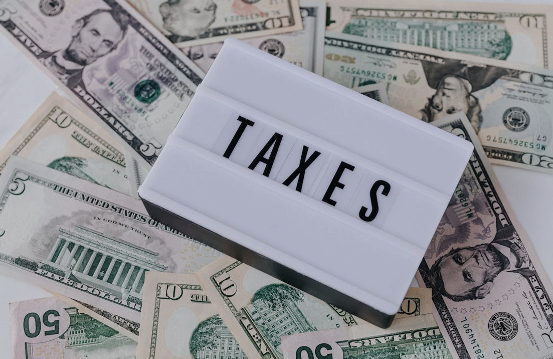New Jersey has long been a trailblazer in online gambling, setting the standard for legal iGaming in the United States. As more states join the market, it's worth exploring how New Jersey’s approach compares to other major players like Pennsylvania, Michigan, and a few rising contenders. From licensing rules to tax rates, each state is shaping the future of iGaming.

New Jersey officially legalized online gambling in 2013, becoming one of the first states to do so. The New Jersey Division of Gaming Enforcement (DGE) regulates the industry, which oversees licensing, compliance, and consumer protection. To operate legally, online casino platforms must partner with a land-based Atlantic City casino and obtain the appropriate license through the DGE.
The state allows various iGaming options, including online slots, table games, live dealer games, and peer-to-peer poker. This diverse offering has helped establish a mature and competitive market that is leading the nation. For example, players looking to enjoy a secure and regulated experience can play casino games at Borgata, one of the state’s premier online gaming platforms.
Pennsylvania legalized online gambling in 2017 as part of a larger gaming expansion bill. The Pennsylvania Gaming Control Board (PGCB) regulates the industry and oversees all aspects of licensing, operations, and consumer safeguards. Operators must obtain a license for each type of online gaming: casino, poker, and sports betting.
One of the most notable aspects of Pennsylvania’s iGaming structure is its high tax rate, particularly on online slots, which are taxed at 54%. Table games and poker are taxed at lower but still substantial rates. Despite the heavier tax burden, the state offers a broad selection of games and has attracted major platforms, making it one of the largest online gambling markets in the country.
Pennsylvania’s model is stricter regarding cost and entry barriers than New Jersey's. However, its success shows that a well-regulated and expansive market can thrive even with higher taxes.

Michigan legalized online gambling in December 2019, with oversight handled by the Michigan Gaming Control Board (MGCB). The state made headlines in January 2021 by launching online casino gaming, poker, and sports betting all at once — a bold and efficient rollout that gave operators and players immediate access to a full suite of betting options. This comprehensive launch allowed Michigan to establish itself quickly as a competitive and modern iGaming market.
Unlike Pennsylvania, which enforces steep tax rates on operators, Michigan offers a more operator-friendly environment. Online casino revenue is taxed between 20% and 28% on a tiered basis, while online sports betting is taxed at just 8.4%. However, the state has proposed a tax rise on online gambling.
Another standout aspect of Michigan's model is its inclusion of both commercial and tribal operators. Each online platform must be partnered with a land-based casino — either one of Detroit’s commercial venues or one of the state’s federally recognized tribes — creating a more diverse and inclusive gaming landscape.
Compared to New Jersey, Michigan has shown more flexibility in its approach to technology partnerships. While New Jersey requires all online platforms to tie into Atlantic City casinos, Michigan’s inclusion of tribal operators broadens the scope for collaboration and innovation. This openness, with its fairer tax structure and streamlined licensing, positions Michigan as one of the most forward-thinking iGaming markets in the country.
A significant distinction between states lies in how they structure their licensing models. New Jersey requires all online gambling operators to partner with a land-based Atlantic City casino, keeping the digital and physical sides of gaming closely linked. However, States like Michigan take a more flexible approach by allowing commercial and tribal operators to offer online gaming. This broader framework opens the door to a wider range of partnerships and technology providers, which can foster innovation.
Tax policies also shape each market in unique ways. While New Jersey has a balanced system that has attracted a stable group of operators, states like Pennsylvania are known for having a more demanding tax structure, which can create financial hurdles for new entrants. Michigan, by contrast, is seen as more operator-friendly, offering a business environment that supports growth without as many cost-related barriers. These differences influence everything from the pace of market expansion to the kinds of promotions and experiences offered to players.
Despite their different approaches, all three states firmly commit to player protection. Each market enforces responsible gaming standards, including self-exclusion programs, deposit and time limits, and tools that help consumers gamble safely. Whether the market is well-established like New Jersey or still gaining ground like Michigan and Pennsylvania, the focus on user safety remains a shared priority.

New Jersey has played a pivotal role in shaping iGaming regulation nationwide, serving as one of the first states to legalize and successfully manage online gambling. Its well-established framework, which includes strong oversight and a wide range of approved games, has influenced how states like Pennsylvania and Michigan developed their markets. As a result, New Jersey continues to be seen as a model for balancing player protection, regulatory clarity, and market growth. As more states enter the iGaming space, the industry will keep evolving, with trends toward broader adoption and possible interstate compacts. These collaborations, especially for games like online poker, could significantly enhance player experiences and mark the next phase in the growth of legal online gambling in the US.